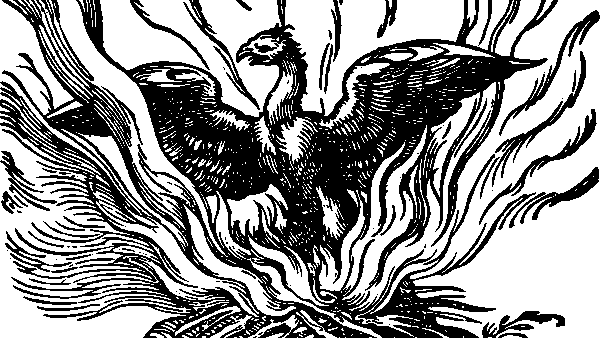 A short, beautiful novel about loss and the fragility of human relationships. It begins with an introduction narrated by a young girl of 5 or 6 whose mother has just walked out on her. Consistent with the view of a child, the events are a little confused and misunderstood but the sense impressions are vivid. In the first two pages alone, we learn that the building she lives in smells of damp rock, we see her father tracing shapes in the dark with a glowing cigarette, we hear the rhythmic bickering of the typewriter, we hear a jangling noise, the strangled whistle of the kettle, hasty, muffled sounds, the aroma of coffee, the greasy yellow of the streetlight, the cigarette ends lined up along the edge of the table like little soldiers.
A short, beautiful novel about loss and the fragility of human relationships. It begins with an introduction narrated by a young girl of 5 or 6 whose mother has just walked out on her. Consistent with the view of a child, the events are a little confused and misunderstood but the sense impressions are vivid. In the first two pages alone, we learn that the building she lives in smells of damp rock, we see her father tracing shapes in the dark with a glowing cigarette, we hear the rhythmic bickering of the typewriter, we hear a jangling noise, the strangled whistle of the kettle, hasty, muffled sounds, the aroma of coffee, the greasy yellow of the streetlight, the cigarette ends lined up along the edge of the table like little soldiers.
After 20 pages or so, the action jumps forward 12 years. The girl, Jo, is now 18, and has gone to stay with her mother for a few months, the first time she is seeing her in all that time. But soon her mother’s partner Alois dies and the mother becomes catatonic with grief. She collects pollen from the garden, sprinkles it over the floor of Alois’s studio and lies there for days. Jo finally breaks in and drags her out and takes care of her. So even now, it’s not the mother taking care of the child, but the reverse. Her mother never apologises for her absence or even tries to explain it. When Jo called her initially, for the first time in 12 years, she simply laughed and “asked incredulously several times if it was really that long.” As if it was a silly mistake or misunderstanding, a friendship let lapse, not a daughter abandoned.
The book is full of dark imagery. Jo is sitting at an idyllic countryside spot with a waterfall and beautiful butterflies fluttering around. But then the butterflies keep dropping into the water and being carried off to their deaths. Jo fishes them out, puts them on a rock to dry in the sun, and then, “quite soon, they unfurl their wings and one after another they head straight back to the water, and their death.”
The image of dead butterflies recurs later, when Jo is stopped by a group of boys who agressively try to sell her a box of “rare valuable butterflies”, all dead. She buys them and then, as soon as their out of sight, throws the box in a bush. I think the butterflies are symbols of life as Jo sees it – beautiful, delicate, fragile and easily broken. This is consistent with her life, in which people appear and disappear without any warning or explanation, from her mother through to friends and boyfriends. Nothing is lasting, and she lives with the constant expectation that things will end. Death is ever-present. Referring to herself in the future, she adds the caveat “if I live that long”. She looks at a “ghostly reflection” of her friend Rea in the windscreen in which “her skin looks quite translucent. Suddenly I’m overcome by the fear that she isn’t going to live.” The main tourist attraction of the town she lives in is a pedestrian underpass in which some old skeletons were found and put on display.
Even living human relationships are bizarre and loveless. Jo’s friend Rea appears to have the family life that Jo lacks, but the family is scattered and Rea refers to her parents with contempt, even her dying mother. When they see a man apparently dead in the underpass, Rea replies “Well, all the more reason to leave him alone. The cleaners will find him later.” After her mother’s initial, exaggerated grief for Alois is over, she quickly starts living as if he never existed. She never asks or says anything about Jo’s father. Jo’s own sexual experience is completely unpleasant, and her tentative relationship with a budding musician is unfulfilled. The boy ends up working on a construction site and she sees him from afar, “his mouth defeated, his hands on his knees, like a little animal in danger, but too tired to find itself a place to hide.”
The image of beauty being destroyed by ugliness is also recurrent. Her mother replaces the painter Alois with a man who’s building ugly hotels across the town, and the musician too gets forced into working on the site. Jo remembers a geography teacher at school who showed them the world map and tried to get them excited about the “mystery waiting to be explored by us, but sometimes a pained smile flitted across his lips, because really we all knew we were dealing with a comprehensively disfigured planet that no one really wants any more.” The pneumatic drills keep hammering away, and the butterflies always die.



There are 3 comments
Beautiful, beautiful review, Andrew! Loved it! I loved the first two pages of the book in which Jo’s father prints books and draws pictures in the air with his glowing cigarette and after reading them I couldn’t stop reading the book. The scene involving the butterflies was very beautiful and one of my favourites. You have described it so beautifully. I loved this sentence from your review – “As if it was a silly mistake or misunderstanding, a friendship let lapse, not a daughter abandoned.” – It perfectly describes how the mother regards her daughter. I finished reading ‘The Pollen Room’ a couple of days back and the things I loved the most in the book was the imagery, something which Jenny inscribes in every page.
I discovered that Zoë Jenny’s most recent book in English has been published by Legend Press 🙂 Have you met her?
Thanks a lot for this beautiful review! In case you would like to read mine, you can find it here.
Hi Vishy, Glad you liked the review. Wow, can’t believe it’s been five years now since I read and reviewed this. I really enjoyed it, and am glad you did too. Yes, I do know Zoë – not that well, but well enough to get invited to the launch for her book with Legend Press 🙂 It was written in English, quite an achievement since it’s not her native language. The Pollen Room is still my favourite book of hers, though. Great that you read it, and I loved your review!